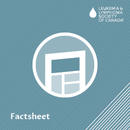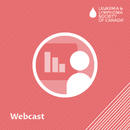Resource Library
Showing 111 to 120 of 333 results
Diffuse Large B-Cell Lymphoma (DLBCL) is the most common subtype of non-Hodgkin lymphoma (NHL). DLBCL is fast-growing (aggressive) but treatable. It most often appears in older adults but can appear at any age.
Cutaneous T-cell lymphoma (CTCL) is a slow-growing (indolent) subtype of non-Hodgkin lymphoma (NHL). CTCL is rare, representing 4% of NHL cases. It starts in white blood cells (lymphocytes) that reside in the skin, called T-cells.
Mantle cell lymphoma (MCL) is an aggressive subtype of non-Hodgkin lymphoma. It is a blood cancer of the B-lymphocytes (type of white blood cell that fights infections) found in the bone marrow. Learn more about MCL in this animated video.
In partnership with Cell Therapy Transplant Canada (CTTC), The Leukemia & Lymphoma Society of Canada (LLSC) is pleased to provide this special, 90-minute webcast on the latest innovations in blood cancer treatment in Canada.
Myelodysplastic syndromes are a group of cancers of the blood and bone marrow. With an MDS, your bone marrow – the soft, spongy material inside your bones – does not produce enough healthy blood cells.
This fact sheet provides an overview of GvHD for healthcare professionals. It reviews presenting symptoms, treatment options and side effects to effectively support your patients.
AML is one of four main types of leukemia. It progresses quickly if untreated. It features cancerous blood cells, often called “blasts.” AML typically affects adults over the age of 65 and is slightly more common in men.
AITL is a rare, fast-growing (aggressive) T-cell subtype of non-Hodgkin lymphoma (NHL) and a common subtype of peripheral T-cell lymphoma (PTCL). AITL typically affects adults over 50.
Learn practical ways to be a proactive agent of change in your own cancer experience or that of your loved one. This webcast was led by Geoffrey Molle and Natasha Sani, from the Community Services Team at LLSC, and will include people impacted by blood cancer. They will offer tips and resources to participate in your own care decisions. Called “self…
Acute myeloid leukemia (AML): Expanding access to novel treatment and care, 2024 Leukemia Conference
Acute myeloid leukemia (AML) is a type of cancer that forms in blood cells and bone marrow that progresses rapidly if untreated. In this presentation, Dr. Brett Houston, a hematologist at the University of Manitoba, will speak about her work in clinical trials in finding ways to optimize care and improve outcomes for patients affected with acute leukemia,…


